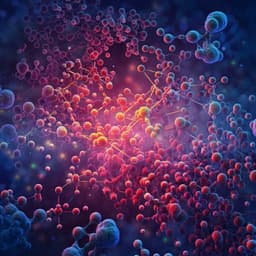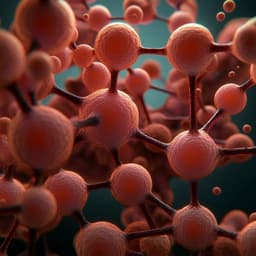
Medicine and Health
Construction of multiple concentration gradients for single-cell level drug screening
S. Shen, F. Zhang, et al.
Discover a groundbreaking microfluidic device developed by Shaofei Shen and collaborators for single-cell drug screening. This innovative platform, featuring a unique Tai Chi-spiral mixer, creates precise drug concentration gradients to evaluate the effects of chemotherapy agents on cancer cells, unveiling exciting insights into drug efficacy and resistance at the cellular level.
Playback language: English
Related Publications
Explore these studies to deepen your understanding of the subject.







